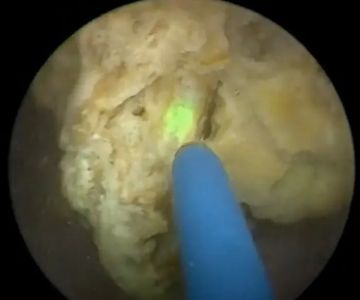- 1. Understanding Dog Toxicity
- 2. Symptoms to Watch for
- 3. Immediate Actions to Take
- 4. Prevention Tips for Dog Owners
1. Understanding Dog Toxicity
As a pet owner, one of the scariest moments can be when your dog eats something harmful, whether it's chocolate, certain plants, or even human medication. Dogs are curious creatures, and they often explore their environment by chewing on things they shouldn't. It's important to recognize that some substances can be highly toxic to dogs, and what might seem like an innocent snack to them can lead to severe health problems.
Common household items that pose risks include foods like chocolate, onions, grapes, and certain artificial sweeteners, as well as plants like lilies and azaleas. Additionally, cleaning products, pest control items, and medications meant for humans can be toxic to dogs. Understanding what substances are dangerous is crucial in preventing accidental ingestion and knowing how to act if it happens.
2. Symptoms to Watch for
After your dog has ingested something harmful, it's important to monitor their behavior closely. The symptoms of poisoning can vary depending on the substance ingested, but common signs include:
1. Vomiting or Diarrhea
One of the first signs that your dog has eaten something toxic is vomiting or diarrhea. These symptoms can help your dog expel the harmful substance, but they can also indicate that the body is under stress.

VCA Arboretum View Animal Hospital, 2551 Warrenville Rd, Downers Grove, IL 60515, USA
See Details2. Lethargy or Weakness
If your dog seems unusually tired or weak, it could be a sign that their body is reacting to the toxin. This can be particularly worrying if your dog suddenly becomes disoriented or less responsive.
3. Excessive Drooling or Salivation
Excessive drooling can be another indication that your dog has ingested something harmful. If this symptom occurs along with other signs of distress, it is a red flag that something is wrong.
4. Seizures or Tremors
In more severe cases, ingesting toxins can cause your dog to experience seizures or uncontrollable tremors. This is a medical emergency that requires immediate veterinary attention.
3. Immediate Actions to Take
If you suspect your dog has ingested something harmful, it's crucial to act quickly. Here’s what you should do:
1. Call Your Veterinarian or Emergency Pet Clinic
Time is of the essence. Contact your veterinarian or an emergency pet clinic immediately. Provide details about the substance your dog ate, how much, and when it happened. This will help the medical professionals assess the situation and determine the best course of action.
2. Induce Vomiting (If Instructed by a Professional)
In some cases, your vet may advise you to induce vomiting to help your dog expel the harmful substance. Never attempt this on your own without professional guidance, as it could make the situation worse.
3. Keep Your Dog Calm and Hydrated
While waiting for medical help, keep your dog calm and comfortable. Offer fresh water to help with hydration, but avoid giving them food or any other substances unless advised by a veterinarian.
4. Prevention Tips for Dog Owners
Preventing your dog from eating harmful substances in the first place is key to ensuring their safety. Here are some essential tips for dog owners:
1. Keep Dangerous Foods and Household Items Out of Reach
Ensure that any harmful foods, such as chocolate, grapes, or xylitol, are stored securely. Keep cleaning products, medications, and any other potentially toxic substances in cabinets that are out of your dog’s reach.
2. Provide Safe Chew Toys
To satisfy your dog’s natural chewing instincts, provide them with safe chew toys. These will keep them occupied and less likely to chew on household items that could be harmful.
3. Educate Guests and Family Members
It’s important that everyone in your household, including guests, knows what substances are dangerous to your dog. Ensure that they don’t accidentally leave harmful items within your pet's reach.
4. Regular Veterinary Check-ups
Regular visits to the vet will help ensure that your dog is in good health and that you’re up to date on any new risks or preventive measures. Early detection of health issues can help avoid more severe complications.










